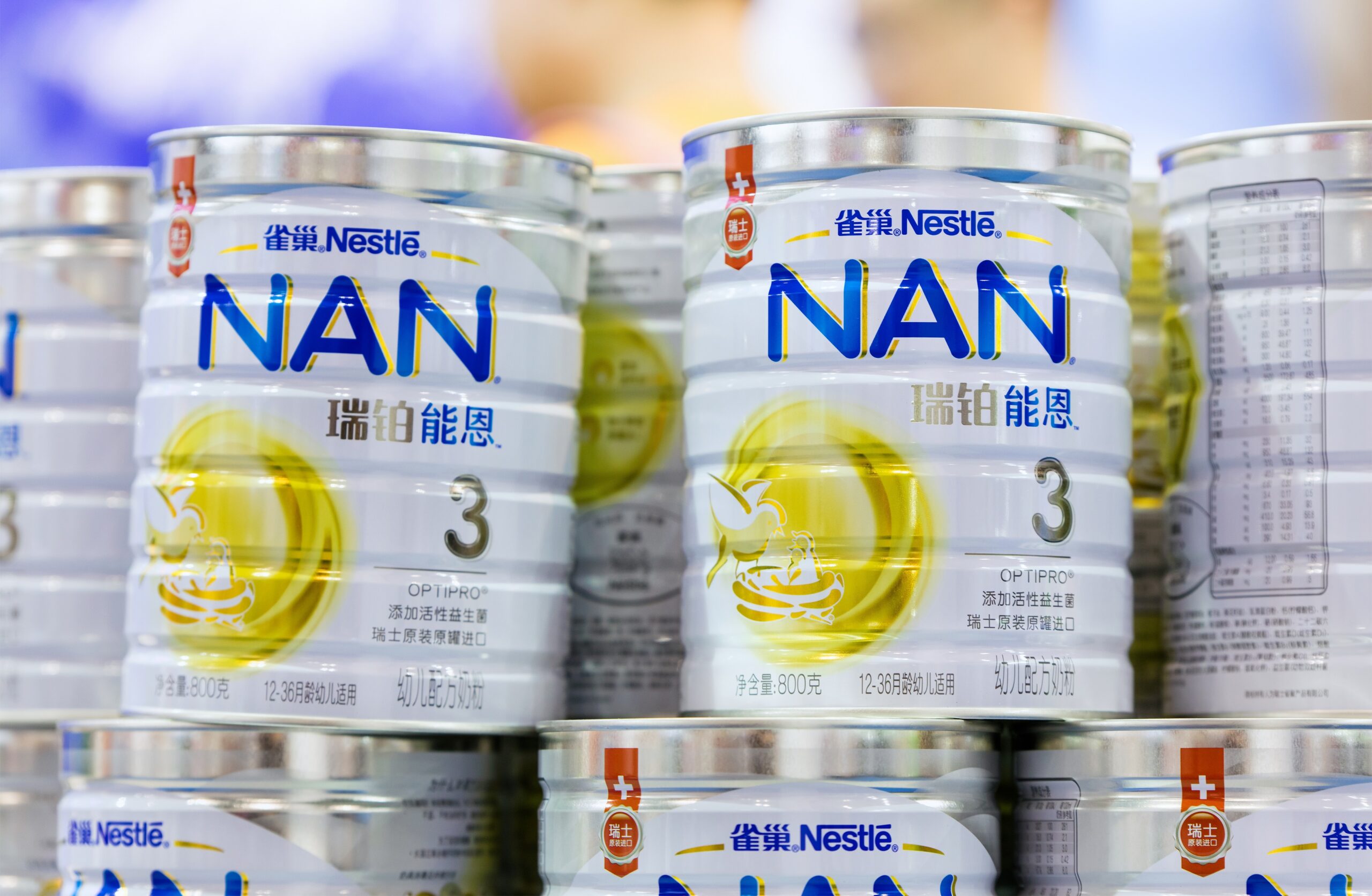
Nestlé CEO Mark Schneider has hinted at measures to address the company’s under-performing infant-nutrition business in China.
The unit has been a drag for Nestlé for some time, an issue the Swiss giant has sought to address through innovation and more localised product offerings in the face of declining birth rates, which have worsened during the pandemic.

Discover B2B Marketing That Performs
Combine business intelligence and editorial excellence to reach engaged professionals across 36 leading media platforms.
While Schneider reiterated his commitment to China today (20 October) – particularly after forming a separate division for Nestlé’s second-largest market behind North America – the CEO suggested a significant development could be on the cards.
Speaking to analysts about Nestlé’s third-quarter and nine-month results, Schneider was asked to give an inkling of what plans the company has for infant formula in China in terms of portfolio and distribution strategy.
“When it comes to some of the details we’re looking at now, I’m also asking for your understanding that I wouldn’t want to go too deep into any future steps that might involve competitive signalling. I think for our shareholders it’s in our best interest here that we basically publish those moves as and when they happen,” Schneider responded.
He added: “What I want to reassure you about is, we will stay totally committed to this business in China. What we’re doing is not a retrenchment, we’re not pulling out of there.

US Tariffs are shifting - will you react or anticipate?
Don’t let policy changes catch you off guard. Stay proactive with real-time data and expert analysis.
By GlobalData“We believe that winning there is going to be essential business. It’s the largest and most demanding infant-formula market in the world, and we’re committed to being a very competitive player in that market.”
While Nestlé’s current Asia, Oceania and sub-Saharan Africa (AOA) business zone, which includes China, reported nine-month organic growth of 4.1%, sales turned negative in the third quarter, weighed down by a decline from infant formula in China.
“Organic growth in infant nutrition was minus 5.2%, reflecting a sales decrease in China, and the slowdown in birth rates across geographies in the context of the pandemic. Outside of China, growth was positive in the third quarter,” CFO François-Xavier Roger explained. “Excluding infant nutrition, China saw double-digit growth.”
Schneider admitted the problems in infant nutrition in China existed before the onslaught of the pandemic.
“We’re not blaming it on Covid. Covid has made it worse, not only in China but also elsewhere, but we need to dig deeper here, and we need to find a winning formula for our nutrition business in China. I can assure you that we’re working hard to fix our issues in China for this key category of Nestlé.”
Summarising some of the key points on rising input costs, Schneider and Roger indicated four straight quarters of increased prices are likely to accelerate in the final three months of the fiscal year and spill over into at least the first half of 2022.
Roger said the impact on Nestlé from input-cost inflation is expected to be around 4% of the cost of goods sold for the full year, mainly due to rising energy and freight prices, and to a lesser extent “salaries and social costs”.
Inflationary pressures have worsened since July, resulting in Nestlé imputing 2.1% in pricing in the third quarter and 1.6% over the nine months, the latter rate being unprecedented for the company in the past six years, Roger said.
“We expect to progressively increase pricing in a responsible manner over the remainder of 2021 and 2022, with different trends by geography and category,” the CFO added. “In addition, we are using other levers such as product mix, disciplined cost management and the further rollout of strategic revenue management tools.”
Nestlé raised its organic growth guidance today for the second time this fiscal year as its “local execution and agility” served as a buffer against the rising input costs and supply chain constraints.
The new 6-7% estimate for the year solidifies organic growth above Nestlé’s longer-term target of mid-single-digits as it reported a nine-month print for the metric of 7.6%, with reported sales up 2.2% at CHF63.3bn (US$68.4bn).
Schneider said the onslaught of inflation came as a surprise this year, describing the unexpected event as a “turning point”.
“I want to make clear our industry in general is not an industry that is in normal times pinched by inflation. When you’re on a regular inflationary rhythm, if you roughly know what is going to be happening next, this industry can adjust and can basically maintain its financial performance.
“On a longer-term basis, once we know what to expect, I think we can pretty much adjust to that and, in our pricing behaviour and some of the other levers we have, make the best of it.”



